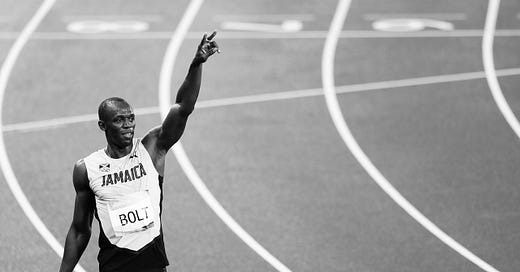The results are just in, and they don’t make for easy reading. World Athletics posted a small financial surplus in 2020, but only because Russia coughed up a fine for its doping misdemeanours. What’s worrying is the long steady decline in the reserves of track & field’s governing body. For the sake of the sport it needs a silver bullet, and fast.
I helped Seb Coe in his successful campaign for the IAAF (now World Athletics) presidency in 2015. We commissioned an analysis of the IAAF’s finances for his manifesto - not an easy task given the federation didn’t then publish its annual accounts, and what was available even to insiders like Coe was skinny.
What the analysis showed was that the IAAF was entirely dependent on the $40m Olympic Dividend it receives every four years for athletics’ role in the Olympic Games. For three years the IAAF ran up hefty losses and in the fourth the IOC payment almost restored the balance. The key though was ‘almost’. Over time, the IAAF’s reserves were dwindling as the organisation over-spent and underdelivered commercially.
Since Coe took over as President the pattern has not changed, although the shape of the spending has. In 2011 the IAAF’s reserves stood at $52m. By the end of 2020 its successor World Athletics had only $31m of equity. And this for an organisation that in pre-pandemic 2019 had a $68m expense base.
If World Athletics was a company listed on the London Stock Exchange, it would be firmly towards the bottom of the FTSE Small Cap Index.
WA’s leaders have tackled expenditure that was bloated under the disgraceful reign of previous president Lamine Diack - found guilty of corruption in a French court last year. But at the same time - laudably for the sake of track & field’s health - millions have been poured into Coe’s newly-created Athletics Integrity Unit. The AIU, which pursues doping and corruption cases, has consumed $8m in each of the past two years, accounting for 12% of total costs in 2019 and a whopping 19% last pandemic year.
Back in 2015 we identified a series of possible cost-cutting measures that could deliver $5-8m a year in savings. It’s not clear how many of these CEO Jon Ridgeon has managed to deliver, but he’s an effective leader and it has to be assumed that he will have turned over all the obvious stones during the pandemic.
What, then, to do? It is never easy for a leadership team to pivot strategically, especially after six years at the helm. But the bold move that athletics needs right now is for World Athletics to seek an outside investor. This would provide cash that could be used to fund the development of new formats of athletics, creating the cornerstone of the sport’s commercial future.
Time then to approach those private equity houses who have been taking stakes in other sports. Many are awash with cash. Find the right investors and they will bring bright minds with fresh thinking and ambition to accompany their cash injection.
Most sports are remodelling themselves, striving to stay relevant to young audiences and, in turn, sponsors. Some new products are unalloyed successes - think IPL cricket. Others are as yet just business plans - think rugby 12s. Athletics has been very tentative in its innovation, although three team events have been trialled in recent years.
Athletics Australia and Usain Bolt spawned Nitro Athletics in 2017. It hasn’t been seen after this one edition. World Athletics retains a 6% stake in Nitro, which tellingly is ascribed zero value on its latest balance sheet. A World Cup premiered in London in 2018 but hasn’t been repeated - and it’s not even clear who now owns its intellectual property. And Dynamic New Athletics (DNA) featured at the 2019 European Games, but any return has yet to announced.
“Nitro Athletics will be like no athletics competition seen before. A high energy, team-based competition.”
“It is the first time, we will find kinks and we’ll make it better, but it was a good start.” Usain Bolt before and after the only Nitro Athletics to date
Athletics has a deep inbuilt resistance to change, and not just among its core fanbase. The World Athletics ruling council has itself proved highly resistant to innovation over the years, preferring only to fiddle with its tired championship and Diamond League products while the sport burns.
Now, though, World Athletics’ leaders have to accept that carrying on down the time-worn path risks penury for the organisation and obscurity for the sport. Instead they must find new competition formats, and secure the backing to give them a real shot at success.
And breathe…
After Europe’s record drubbing in the delayed 2020 Ryder Cup, the earlier decision to shuffle all future editions of golf’s premier team event back a year - effectively shifting from even to odd years - looks especially wise. Even years are always dominated by either the Olympics or football World Cup, so the move will give the Ryder Cup just a little more space to capture the attention of general sports fans. More importantly, Europe has 24 months to rediscover its competitiveness. Golf could ill afford two displays of American imperiousness in the space of a year, however much Europe’s golfers might be hankering after their shot at redemption.





Bravo Ed! Thanks a lot! Some people from athletics family understand the gravity of the situation and that urgent measures are to be taken but no one spoke out so far. Moreover, majority of the family still refuses to accept the current worring situation and that there are needs for bold changes and new products and commercial approaches...